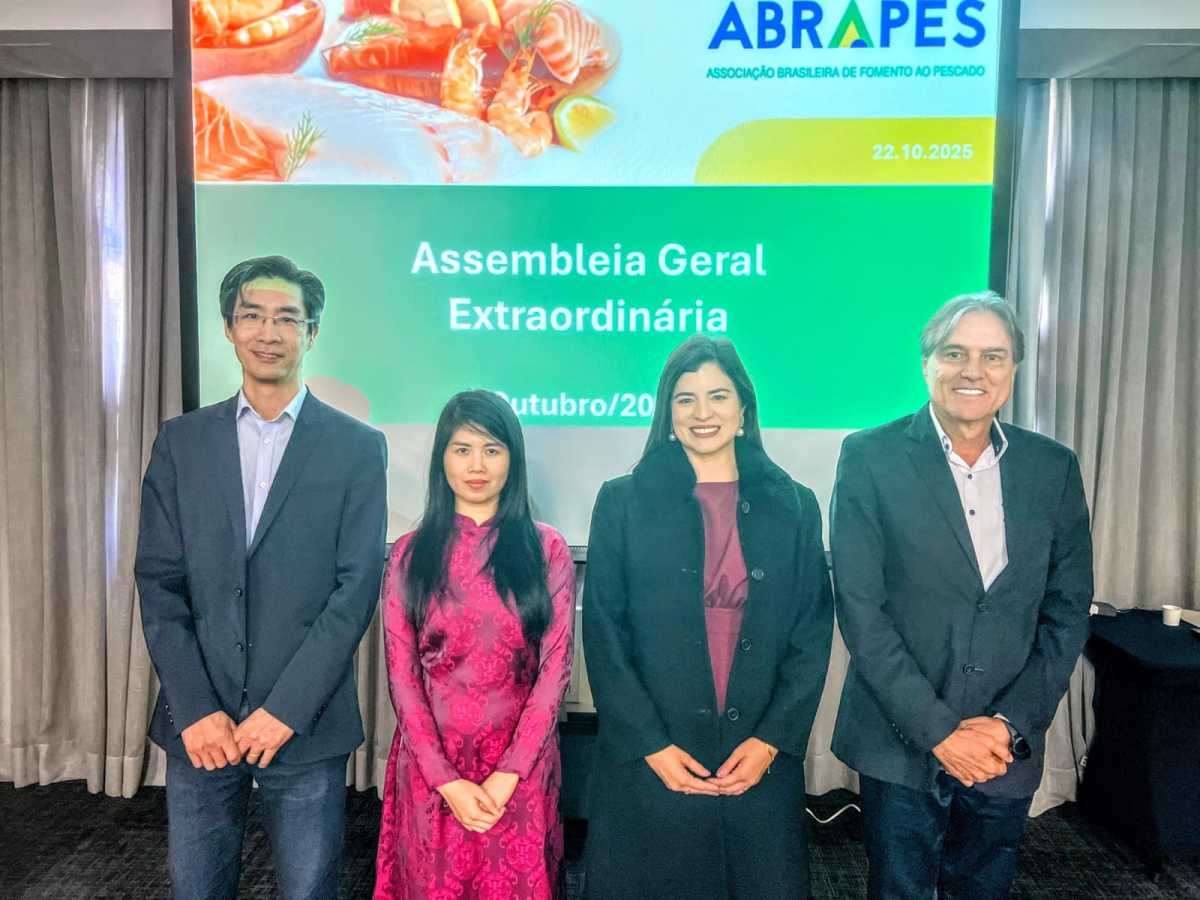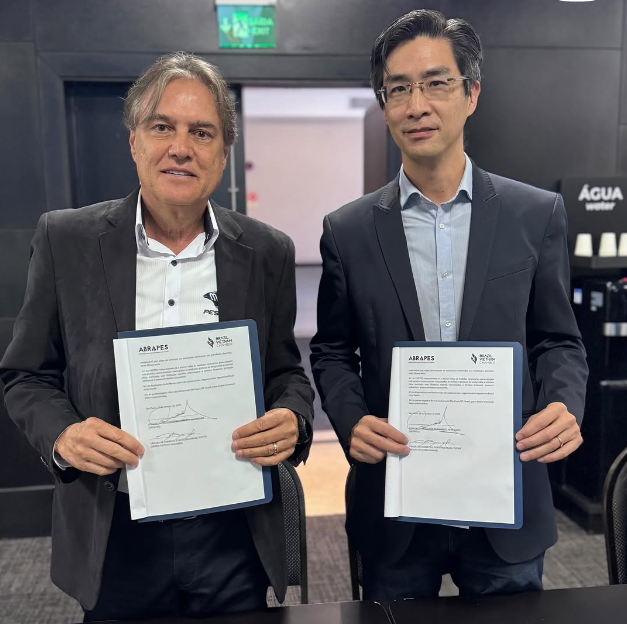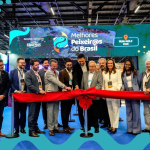On October 22, 2025, a Memorandum of Understanding (MOU) was signed between the Brazil Vietnam Chamber and the Brazilian Association for the Development of Fish (ABRAPES), marking an important step in strengthening institutional and commercial relations between the two countries.
The signing ceremony took place during ABRAPES’s General Assembly, with the presence of Mr. Júlio César Antônio, President of ABRAPES; Ms. Thamires Quinhões, Executive Director of ABRAPES; Mr. Victor Key, President of the Brazil Vietnam Chamber; and Ms. Pham Hong Trang, Head of the Commercial Office of the Embassy of Vietnam in Brazil.

During the event, Ms. Pham Hong Trang highlighted Vietnam’s strategic role as one of the world’s largest seafood exporters, emphasizing the country’s commitment to sustainability, traceability, and market diversification. In her speech, she underscored the opportunities for cooperation between Brazil and Vietnam in strengthening seafood trade and technological exchange, and invited ABRAPES members to participate in Vietfish 2026, one of Asia’s largest international seafood fairs, to be held in Ho Chi Minh City in August 2026.
The MOU aims to establish institutional cooperation between the two organizations, promoting joint actions to enhance trade relations between Brazil and Vietnam, particularly in the seafood and related products sectors.
Key commitments under the agreement include:
- Identifying and connecting companies interested in business opportunities in both countries;
- Sharing strategic information on business environments, trends, and sector developments;
- Supporting business and institutional delegations, facilitating visits and bilateral meetings;
- Collaborating with public authorities, ministries, and embassies to strengthen institutional dialogue and promote trade and investment.
This agreement comes at a time when international seafood trade is increasingly important for balancing protein supply and demand in Brazil. In this context, the importation of pangasius, a fish primarily from Vietnam, has become essential to supply the Brazilian market with an affordable, versatile, and high-quality product.
Pangasius stands out for its mild flavor, delicate texture, and culinary versatility, making it an attractive option for restaurants, food service chains, and households. In addition to meeting international quality and sustainability standards, its importation helps stabilize domestic prices and expand the seafood supply, reducing pressure on local production.
At the same time, discussions about opening tilapia imports represent a new milestone in Brazil–Vietnam trade relations. Tilapia is the most produced and consumed fish in Brazil, and its potential importation from aquaculture leaders like Vietnam could positively impact domestic supply, enhance competitiveness, and reduce costs, especially during low production periods.
With proper regulation, this process also creates new opportunities for commercial integration and technological exchange, strengthening bilateral cooperation and promoting sustainable and responsible aquaculture practices.
The agreement between the Brazil Vietnam Chamber and ABRAPES reflects a shared commitment to promoting trade, investment, and sustainable development in the fisheries sector, further consolidating a long-term strategic partnership between Brazil and Vietnam.





